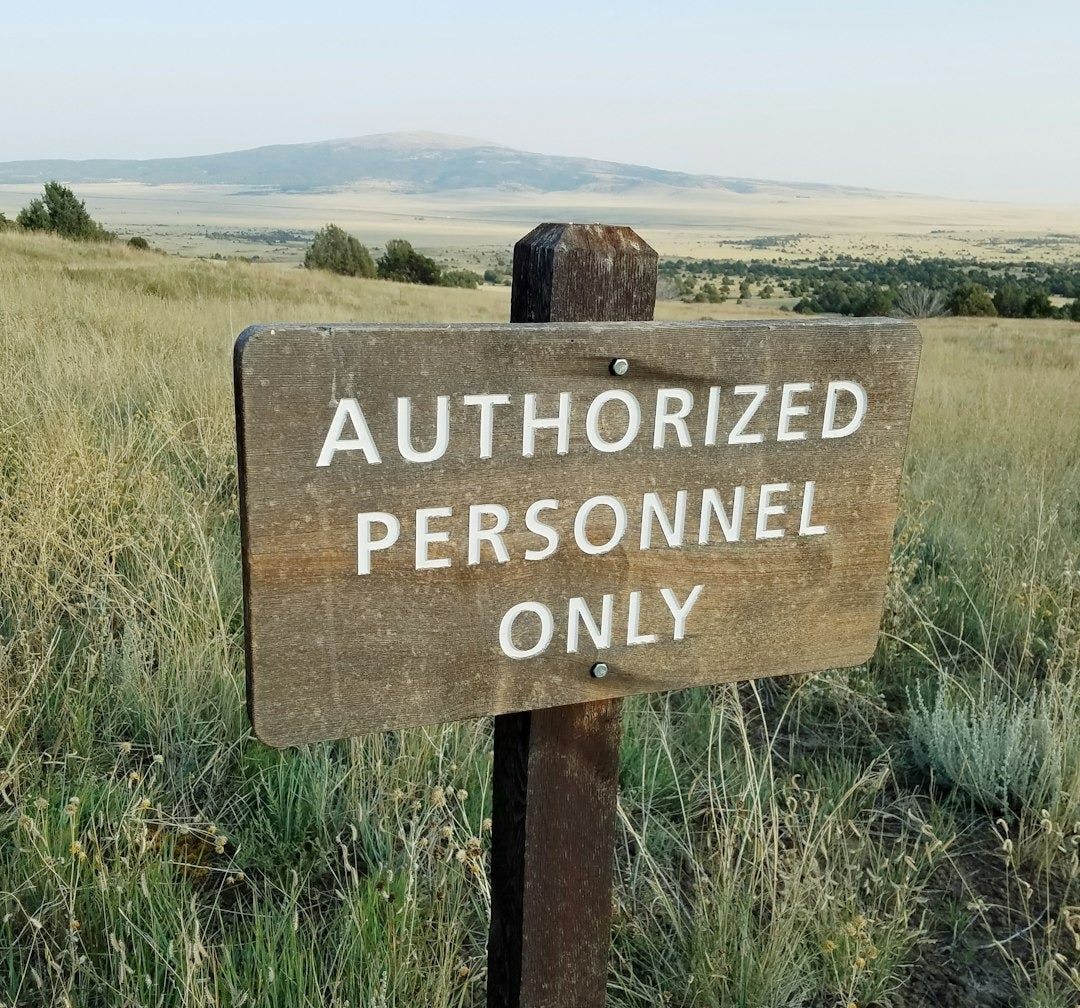Why Authority is Your Secret Conversion Weapon (The Research Will Surprise You)
And the neuroscience that backs this up

One of the most overlooked factors that most creators completely miss when trying to monetize their content is building authority.
Picture this: Two Substack creators publish identical content on the same topic. Same quality, same insights, same audience size. One converts 1% of readers to paid subscribers. The other converts 8%.
The difference isn't luck, timing, or even content quality. It's authority.
Most creators obsess over perfecting their writing, posting more frequently, or finding the "right" topic. Meanwhile, they're missing the psychological foundation that makes people willing to pay: the perception that you're someone worth following.
Today, let's examine the research behind why authority drives conversions and why most creators are building their business on quicksand without it.
The Research That Proves Authority's Power
Research into how we view authority has shown that if we view someone as having authority, compliance increases by over 50%:
Let’s imagine that you’re waiting for a friend outside a restaurant. A person wearing a security uniform comes up to you and says, “See that man over there? He’s over-parked, but doesn’t have any change. Go give him a dime.” Would you give him the dime? Statistically speaking, you probably will; 92% of the participants in this study, done by Leonard Bickman in 1974, did. However, when the requester wore civilian clothes, that percentage dramatically decreased to 42%. (Same person, different outfit = huge difference in influence.) This is the authority principle at work.
When people perceive someone as an authority figure, they're dramatically more likely to follow recommendations, including purchasing decisions or even direct orders.
But here's what makes this particularly relevant for creators: a recent LinkedIn study found that content from employees generates 8x more engagement and 10X more followers than company accounts. The reason why is linked to credibility; We view employees and what they have to say as being more credible than similar or even identical messages from a brand account.
The neuroscience behind this is fascinating. Our brains are evolutionarily wired to follow authority figures as a survival mechanism. When we encounter someone we perceive as an expert, our prefrontal cortex actually reduces critical thinking and increases acceptance of their ideas. It's not laziness, it's biology.
This shows up constantly in business. People pay premium prices for advice from McKinsey consultants that they'd ignore from their neighbor, even when the advice is identical. The authority perception creates the value as much as the content itself.
Why Most Creators Miss This Completely
Here's the mistake I see repeatedly: creators assume good work speaks for itself. They focus on content quality while ignoring credibility building. Most of us hate self-promotion, so we tell ourselves that “If I build it, they will come”.
This is backwards thinking. Your expertise might be world-class, but without authority signals, potential subscribers have no way to distinguish you from the thousands of other creators in your niche.
There's a crucial difference between expertise and authority:
Expertise is what you know. Authority is what others believe you know.
You can be the most knowledgeable person in your field, but if you don't communicate that knowledge in a way that builds authority, you'll struggle to convert readers into paying subscribers.
Fortune 500 companies understand this instinctively. They invest millions in thought leadership, speaking engagements, media appearances, and strategic partnerships not because their products need improvement, but because authority drives purchasing decisions.
The Authority-Conversion Connection
Authority works so powerfully in conversions because it reduces psychological friction in the buying process.
When someone perceives you as an authority, they experience what psychologists call "cognitive ease." Instead of carefully evaluating whether your content is worth paying for, their brain takes a shortcut: "This person clearly knows what they're talking about, so their advice is probably valuable."
This creates psychological safety around the purchasing decision. People feel confident they're making a smart choice by subscribing to someone who's obviously an expert, rather than taking a risk on an unknown creator.
Authority also compounds over time. Each authority signal you build makes the next one more believable. Your first media mention makes the second one easier to get. Your first collaboration with another Substack writer makes it easier to get the next one. This creates a virtuous cycle where authority builds on itself.
The conversion impact is dramatic. People don't just pay for information anymore, they pay for credible information. In a world where everyone's creating content, authority becomes the filter that helps people decide where to invest their attention and money.
The LinkedIn gooroos that we all complain about know this. They know that authority and credibility matters, that’s why they go to such (often insane) lengths to convince you of their authority. Shoutout to r/LinkedInLunatics for documenting the insanity for us!
Which is another reason why we all need to become more comfortable establishing our own legitimate authority and credibility with our audiences.
What This Means for Your Substack
Understanding that authority drives conversions is just the beginning. The real question becomes: how do you systematically build authority that translates into subscriber growth?
Most creators approach this randomly, hoping authority will develop naturally over time. But authority, like any business asset, can be built strategically through specific, repeatable actions.
The companies I've worked with that master authority-building follow proven frameworks. They understand which signals carry the most weight, how to communicate expertise without appearing arrogant, and how to leverage existing credibility to build new authority.
This isn't about becoming famous or chasing vanity metrics. It's about strategically positioning yourself so that when potential subscribers discover your content, they immediately recognize you as someone worth following.
The difference between struggling at 1% conversion rates and achieving consistent 5-8% rates often comes down to authority positioning, not content improvement alone.
Here's the Truth About Authority That the LinkedIn "gurus" Won't Tell You:
You don't need to post screenshots of your bank account or make ridiculous claims about "crushing it" to build real authority.
The most credible people I've worked with in 20+ years rarely shout about their success. They simply share what they know, acknowledge what they've learned, and let their insights speak for themselves.
Your expertise is already there. Your experience matters. The question isn't whether you're qualified to share your knowledge, it's whether you're brave enough to stop hiding it.
The creators converting at 8% aren't the loudest ones. They're the ones who learned to communicate their value without feeling gross about it.
What's one piece of knowledge you have that you've been too modest to share?
Ready to Grow Your Substack Into a Sustainable Business?
For 20 years I’ve helped everyone from startups to Fortune 500 companies design strategies to acquire, retain, and delight customers. Now, I’m sharing those same proven strategies with you here.
👉 If you’ve found this helpful, consider becoming a subscriber. Paid subscribers unlock access to my full library of 130+ articles, templates, and step-by-step guides—everything you need to grow your Substack with confidence.
Monthly subscriptions are $7.50, or $60 annually (a 33% savings).
Together, we’ll turn your Substack into a business that lasts.
Mack
Backstage Pass teaches you how to better connect with your customers, readers, clients, or donors. The lessons shared here draw on my experience over the last 20 years building customer engagement strategies for companies like Adobe, Dell, Club Med, Ingersoll-Rand, and countless others. I give you real-world research, examples and tactics that show you how to create customer engagement efforts that drive real business growth.
The Psychology Behind Why Some Posts Get 50+ Comments (And Others Get Zero)
After 20+ years helping Fortune 500 companies design and execute digital engagement strategies, I can tell you the difference between posts that get 2 comments and posts that get 50 isn't what most creators think. The difference wasn't luck, audience size, or even content quality. It was psychology.



Love, love, love this piece — you’ve nailed the conundrum. Interestingly, I think there’s often an inverse correlation between those who feel confident shouting authoritatively and those who quietly demonstrate their expertise. But as you say, authority will win in the end, and that’s given me a lot to think about.
Also, your point about individual LinkedIn profiles is spot on — the algo definitely prioritises personal posts over company or brand posts.
Mack, this really hit home for me! Authority is something I’ve usually downplayed, thinking my work would “speak for itself.” I’d rather hear about people’s passions first. Reading your breakdown of the science and psychology behind it all was a big moment. I love how you distinguished between expertise and authority—that feels so relatable and true, but I hadn’t seen it spelled out like that before.
I was raised not to talk about myself. That is “bragging,” according to my grandma. Her words in my head stop me in my tracks every time I think about promoting my expertise and authority.
The reminder that sharing what I know isn’t bragging; it’s providing value is powerful. I really appreciate how you focus on genuine credibility instead of loud self-promotion. Thanks for giving me a nudge to recognize my own worth! I’m excited to put some of these ideas into action (and maybe be a little less modest along the way 😊).